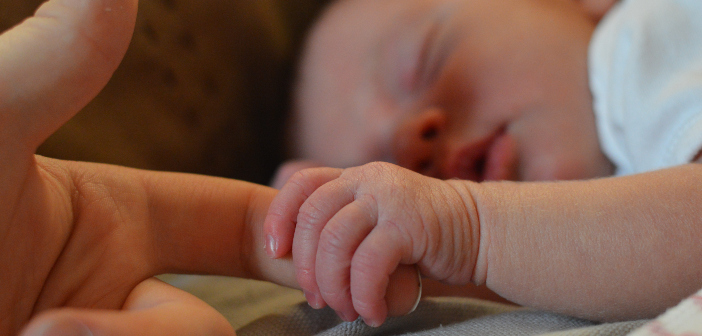The night before my first day back to work after my maternity leave was “overly dramatic” as my husband said. I held onto my baby girl and walked around my apartment with an over-the-top pouty-lipped frown on my face like I was about to get shipped off to war or something. The next morning I kissed my baby goodbye and rushed off to work where I promptly called my ayi for some video time with my daughter.
Going back to work after having a baby isn’t easy, physically or emotionally. For the breastfeeding moms, our work schedule now needs to include making time to pump no matter how busy your day is.
While my colleagues at True Run Media are amazing at accommodating the needs of a new mom, the same can’t be said for every company in Beijing. There will always be gossipy colleagues who look down on working parents and work environments and company culture that wasn’t designed for those with families in mind.
But before you overstress yourself with balancing office politics and family time, know that China has very strict employment laws that every company needs to follow and for working moms, they’re created in our favor. One of the biggest concerns for new working moms is working hours and breastfeeding.
During pregnancy, to protect the physical and mental health of mom and baby, scheduling night shifts and extending working hours for women seven months pregnant and above is strictly prohibited in China. It is also illegal for a company to deny requests by expectant mothers needing to schedule prenatal visits during working hours. If your work includes tasks that are deemed unsuitable for pregnant women, your company will be responsible for reducing the amount of labor or arranging other suitable tasks for you. Don’t ever assume that you don’t have a choice because China takes the health and safety of babies very seriously.
Even after your new bundle of joy is born, your employer will not be allowed to request overtime or arrange night shifts for you before your baby turns one year old.
I’d never heard of breastfeeding leave until very recently. After your baby is born (and you’ve returned to work) your employer needs to allocate one hour of your workday for breastfeeding time before your baby turns a year old. For moms with multiple babies, your employer will need to arrange an additional hour for each baby. Despite the name, this doesn’t mean you need to have someone bring your baby to the workplace or run home to breastfeed. It simply means that you get an hour out of your workday to pump. And if you’re working in an environment where there’s a large number of female employees, it’s the employer’s duty to arrange for a safe, clean environment for moms to pump in peace. If like me, you need to pump multiple times throughout the workday, then your allocated hour can be broken up into multiple sessions.
This is also where a second look at your employee handbook might come in handy. Although the official government regulation is to require that the employer gives new moms an hour out of their workday to pump, many companies offer new moms the option to either arrive an hour later or leave an hour early to breastfeed at home.
If you’re about to return to work, have a discussion with your HR department. While every company in Beijing needs to obey China’s employment laws, many companies will also offer their employees additional benefits to make the transition into working-parenthood easier.
KEEP READING: The One-Gender-Children Parent Club
Images: Pexels




